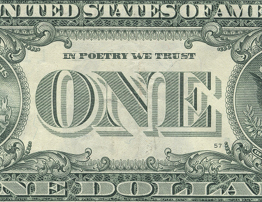
The conversation of poetry takes many forms. The following three types of conversation are metaphors that illustrate some of the trust dynamics at play in contemporary poetry. See if you recognize them–both the actual conversations, and the experience of the conversation, transposed onto the experience of reading certain poems.
The first is a conversation with that friend who is always at the effect of some terrible circumstance. They tell you, in detail, the latest mishap, and with such conviction that it would be difficult not to feel sorry for them–if you were naive enough not to realize, after mishap after mishap, and tale after tale, that with them, the drama will never end. But the more you try to inure yourself to their tales, the more dramatic they become. In the end, you can’t help but feel emotionally manipulated. Even if this person believes their own story, it is hard to trust them not to tug excessively hard, fast, and often at your heart strings.
The second kind of conversation is one among acquaintances, perhaps a group of smart freshmen undergraduates getting to know themselves and each other in uncertain new circumstances. Here wit is the currency of the conversation, a constant repartee. In this atmosphere of intellectual one-upsmanship, conversation is designed to hold the others at emotional arms’ length, never risking anything intimate unless it is couched in a sarcastic tone. Any sense of trust in what is being said is constantly subverted by clever, fast-paced ripostes. I have often left such gatherings with a deep sense of alienation.
Finally, there is the third conversation that takes place among old friends. The group has been through a lot together, has watched each member change over time, knows the good and bad, the essential humanity of each flawed person. The result of such combined familiarity and acceptance is that the conversation can go deep, both emotionally and intellectually, without feeling either manipulative or vacuously clever. Such moments are precious, and I have come away from these rare intimate gatherings, not only with a greater appreciation of old friends, but a renwed faith in humanity.
Since the Second World War, poetry in the postmodern age has veered between emotionally manipulative modes, and intellectually defensive modes of deconstruction. Neither builds much trust with the reader, since ultimately the intention behind either one is to aggrandize the author. Having become disillusioned to ideas of centrality and truth as institutional concepts, these two warring forms of narcissism have taken over much of contemporary poetry. Yet it is this third mode–a return to trust that involves embracing the greater truths of the human condition–that represents where I believe poetry can, and must, go.
If centrality were the thesis, and postmodern distrust the antithesis, in the dialectic now playing out, then the synthesis that our literature, and our world, so desperately needs is an integrative embrace of paradox. To restore our belief in humanity, we must first restore our literature–neither to a position of emotional manipulation nor to an alienating trickery–but to an affirming conversation that can abide contradiction, disillusionment, and doubt without becoming either cynical or sappy. This is the kind of poetry that rewards our trust, not with mere emotional or intellectual sensation, but by transforming our understanding of what it means to be alive.
For more on this topic, please see Post-Postmodernism and Hope.